After more than three years leading the University of North Florida, President Moez Limayem has stayed grounded in his mission to ensure every student’s success, as he’s persisted, “within the framework of the law.”
Limayem is one of the few public university leaders in Florida who have worked directly with students in the classroom. He said his experience being an educator and researcher has helped him navigate turbulent times, which he’s come to know all too well.
One of those times was earlier this year, when UNF and all other Florida public colleges and universities were required to enter agreements with U.S. Immigration and Customs Enforcement (ICE), a divisive issue among students, faculty and staff.
Since then, Spinnaker has made several requests to interview President Limayem on the subject but each were denied by university representatives. An interview was scheduled only after Spinnaker agreed to interview Limayem on UNF’s new AI certificate. During the Sept. 25 interview, President Limayem spoke for the first time publicly to students and the broader UNF community on the university’s ICE agreement.
President Limayem on UNF’s agreement with ICE
UNF is among the growing list of public schools across the country participating in the federal 287(g) program since it finalized its ICE agreement in July. The program allows UNF police to enforce federal immigration laws after being trained.
On Thursday, President Limayem was confident UNF has been “the most transparent university” on this issue, referencing its several email updates on officer trainings and resources. However, UNF students, faculty and staff still say the university has not been transparent enough about what the program will look like.
This summer, Gerardo Diaz, student and president of the Latin American Student Organization (LASO), said the agreement also raises concerns for Latino students and the immigrant community at UNF.
“It’s just, it’s really upsetting,” Diaz said. “You know, we’re here at a university, we’re here studying for a reason, we’re trying to pursue something for a reason… So why is it that… you have to singly target certain people just by the way they look?”
Immigrant attorneys and advocates say those who simply appear or sound like immigrants face a high risk of being detained by ICE officers, the Associated Press reported in May. In early September, the U.S. Supreme Court overturned a ruling that prevented ICE agents from using race and ethnicity as grounds for questioning.
Born in Tunisia, Limayem himself is a naturalized U.S. citizen. He’s one of the only university presidents in Florida who has gone through the immigration process. Limayem said he is not indifferent to students’ anxiety about the agreement.
“I went through that. I understand the stress. Every time you come to cross any borders… that was stress that I lived,” Limayem said.
“We were instructed to sign this agreement. But also, I can assure you that every time there was a new development, we were so transparent about what is happening and what it means for our community here at UNF,” Limayem said.
According to ICE records, federal officials finalized the university’s ICE agreement on July 7. Despite this, a university-wide email from Limayem wasn’t sent until a full week later, on July 14, hours after Spinnaker requested a comment from officials.
While the agreement allows UNFPD officers to be trained for immigration enforcement, Limayem said in his July 14 email that “no training has been scheduled.” Four days later, UNFPD officers began online ICE trainings, a university spokesperson confirmed on Aug. 27.
When questioned, Limayem confirmed that he and his team did not know officer training had begun until Spinnaker asked about them.
“You were at the right place at the right time and you were quicker than us,” Limayem said. ”It wasn’t a plan.”
“We work really carefully on our messages because we want to be transparent, but we don’t want to scare people,” Limayem said.
Limayem also pointed out that ICE is a federal agency that is not under university or state jurisdiction. He also said students should appreciate UNFPD and its commitment to ensuring campus safety.
“Please let’s make sure we understand—ICE are federal agents. They do not need the [university] president’s permissions… or any permission to come and go to any place and reinforce the law,” Limayem said. “With this agreement or without this agreement.”
“I hope…[students] appreciate the role that our police department plays here. They are wired differently,” Limayem said.
“When we hire them, we make sure they understand they are here to protect, assure the safety of our faculty, staff and students; not to arrest and penalize and punish,” Limayem said. “This is obvious. That is so important for people to understand.”
To solidify his stance on the issue, Limayem asked a rhetorical question:
“If you have to deal with immigration issues or any type of situation that requires the intervention of law enforcement, would you rather have to do with one of our own officers who are trained, wired differently? Or, someone else, who does not know us, who is here to just reinforce the law? With all my due respect to them, but they are not the same.”
The president reiterated that he and his team are committed to transparency, providing resources and said those who have concerns should send them his way. Limayem also made a promise to do everything in his power to keep the UNF community informed.
“Safety, security of our students—that’s my top, top concern. That’s the only thing that really, in addition to another few, keep me up at night. We’re not indifferent. This is personal for me,” Limayem said.
“If there are other ideas, short of not complying with the law, that our wonderful students or anyone has for us, we’re here to listen. If they want to know something that we have not answered, please, come to us. We’ll answer.”
“I promise you we will do everything we can to inform them with everything we have and take them to the right resources that could help them.”
In addition to this promise, Limayem confirmed during the interview that there has been no ICE activity on UNF campus and that as of Thursday, no UNFPD officers have completed training.
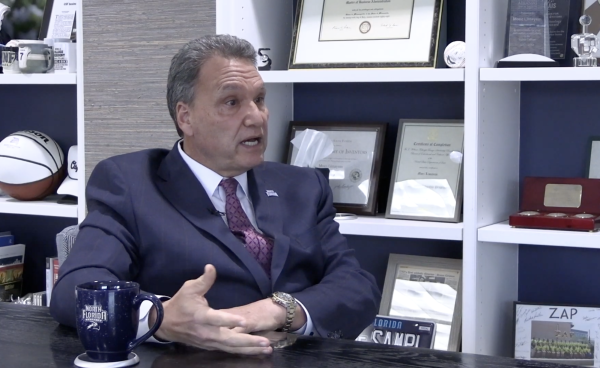
The role of a university president
When asked to describe his responsibilities as a university president, Limayem listed fundraising and strategic planning as paramounts. However, Spinnaker’s comment sections indicate that many misunderstand the role of a university president and Limayem’s actions on university and state policy—things he has no control over.
“I am the president of this great University of North Florida, and I have a total control of [a] $20 budget,” Limayem joked. “But in all seriousness, I think the best analogy would be… the CEO of this university.”
Hierarchically, the university president does not wield the highest power at UNF—the Board of Trustees does. The BOT has final say on a lot, including Limayem’s compensation, university policy and funding allocation. While Limayem does have input on budgeting, he said a large part of his job is fundraising.
“A big part of my job is to increase the resources for this institution,” Limayem said.
He also emphasized his role in carrying out UNF’s strategic vision and hiring the cabinet members who help execute it. Additionally, Limayem serves as the interface between the university and the state government.
“I think my job is to represent the university… The president is the face of the university for the community,” Limayem said.
“I do not make laws, I do not… make regulations that come from the state,” Limayem said. “But I am responsible for compliance with these laws and these regulations.”
While the president is adamant about making sure UNF complies with the law, some directives have proven harmful to the institution and to Limayem’s strategic goals.
One of UNF’s strategic goals is to reach R1 status, which would require the university to spend more funds on research. Earlier this year, Trump executive orders caused UNF to lose nearly $15 million in funding that would have helped the school achieve this goal.
Federal cuts have caused university presidents across the country to speak out against the Trump administration. Following the federal cuts that significantly impacted UNF and other schools, PBS reported that hundreds of college and university presidents signed a letter in protest of the Trump administration’s “unprecedented government overreach.” As of Sunday, 662 higher-ed administrators have signed their names.
One question UNF faculty wanted Spinnaker to ask the president was this: At what point would you be willing to risk losing your job or risk breaking the law to do what you believe is right?
“No one, by breaking the law, got anything,” Limayem said. “If we start breaking the law right and left… you know what would happen.”
“We are a state institution. Complying with the law is what we do here. There are other means to change the laws… If people want to change the laws, you know what they do?… They go and vote and change the law. That’s the essence of democracy.”
“‘Fear of losing my job’—that’s not my biggest fear,” Limayem said. A self-described “academic at heart,” Limayem said he could always go back to the classroom and teach, if needed.
“My biggest fear is our institution would be hurt. When it is hurt, who will be hurt? Our students, our faculty and our staff. My job is to protect this institution within the framework of the law. That’s what I do. That’s my biggest fear,” Limayem said.
“I am not here to be the hero. I am here to protect this institution.”
___
For more information or news tips, or if you see an error in this story or have any compliments or concerns, contact editor@unfspinnaker.com.





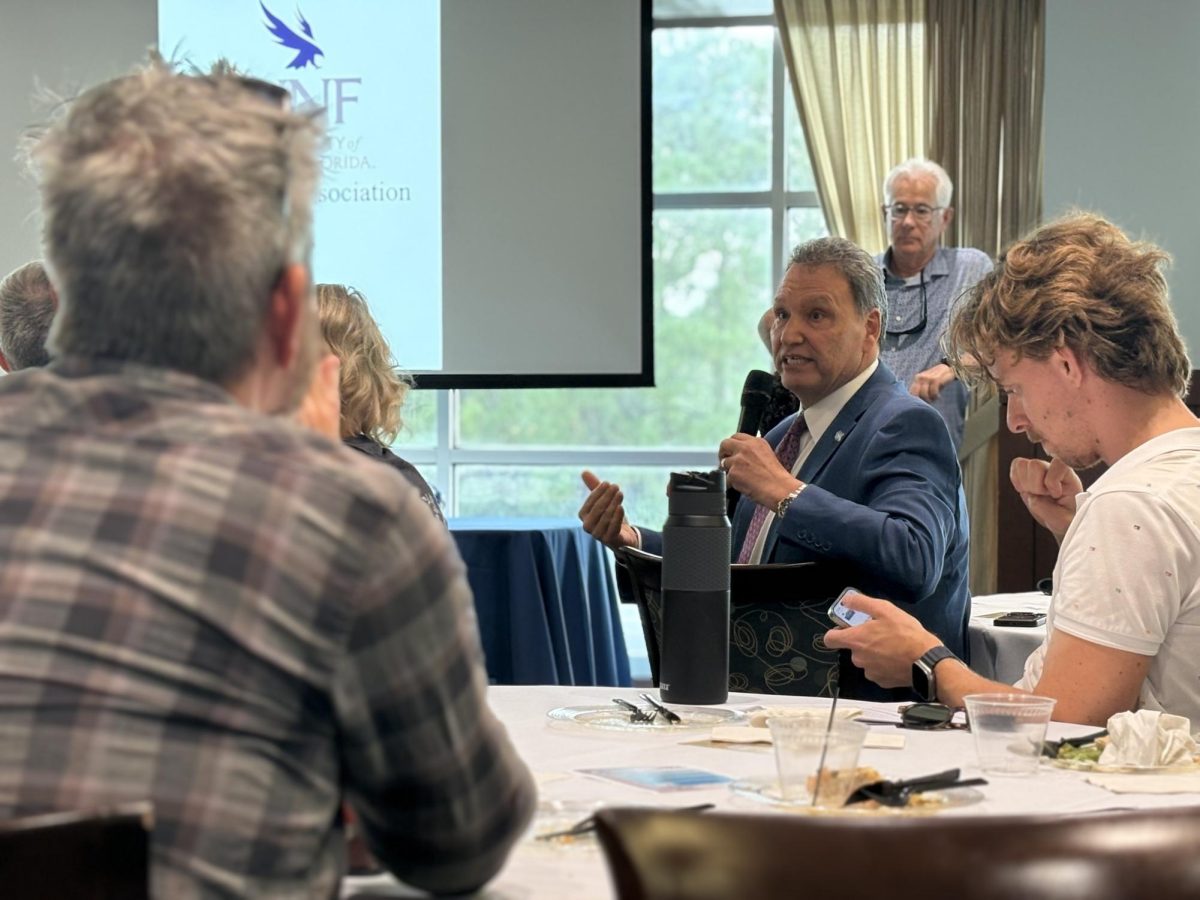

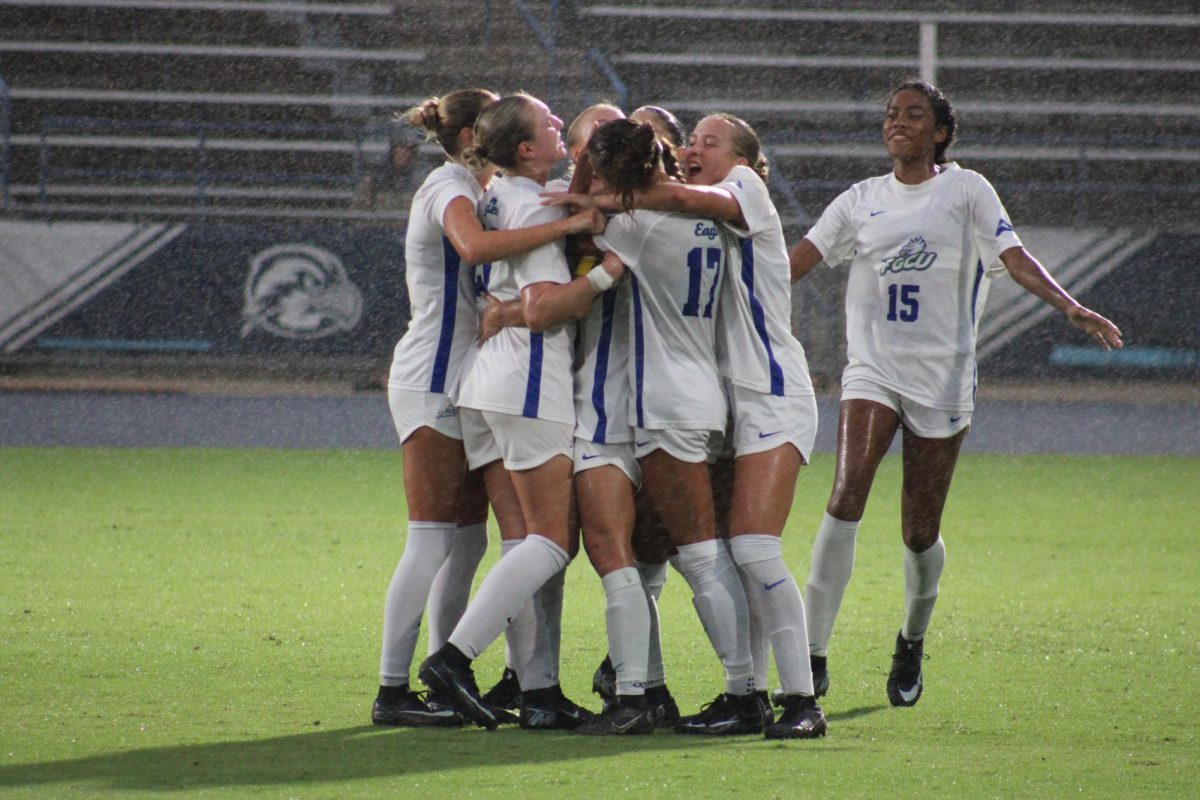
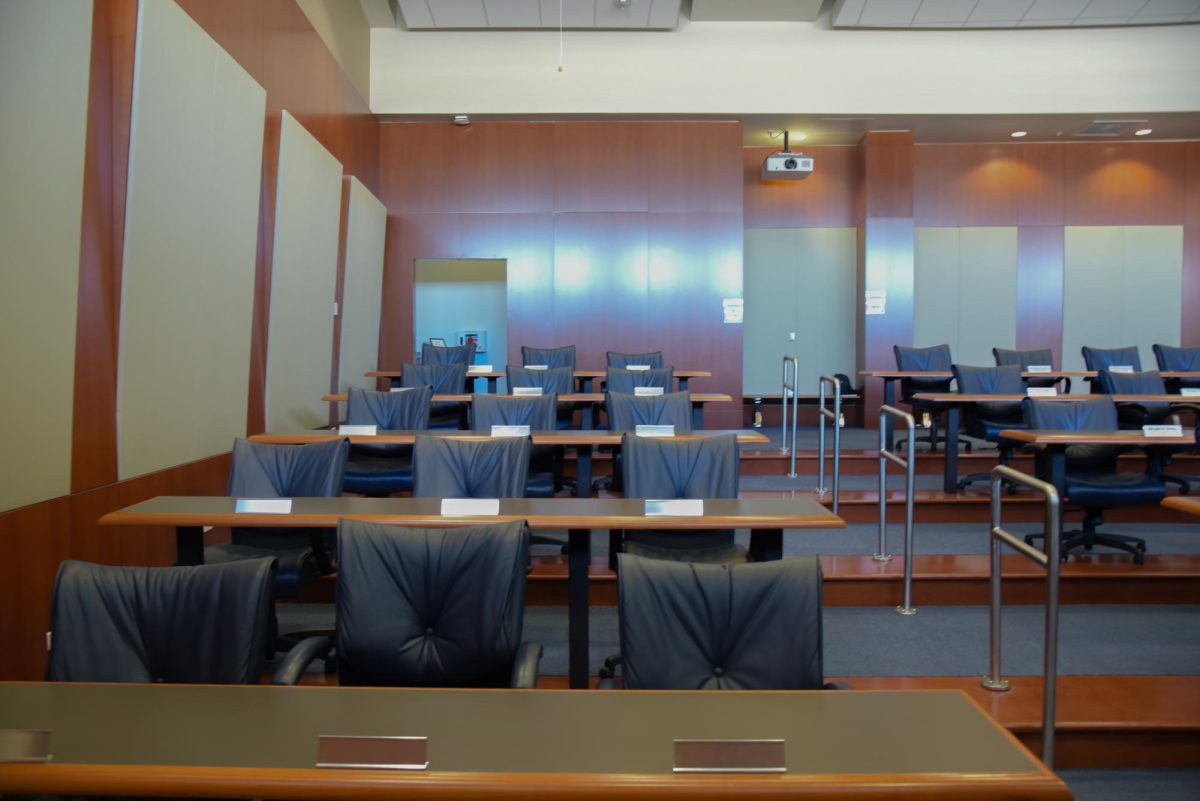
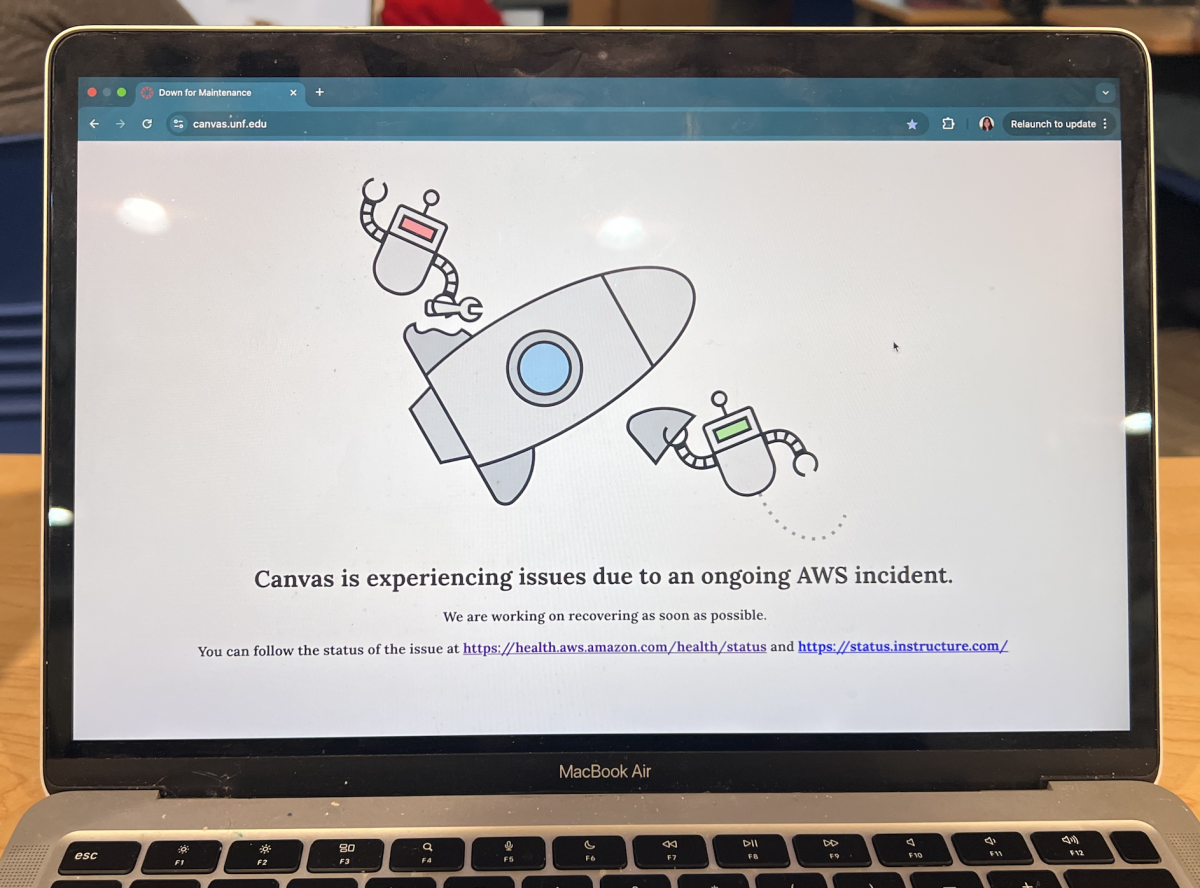
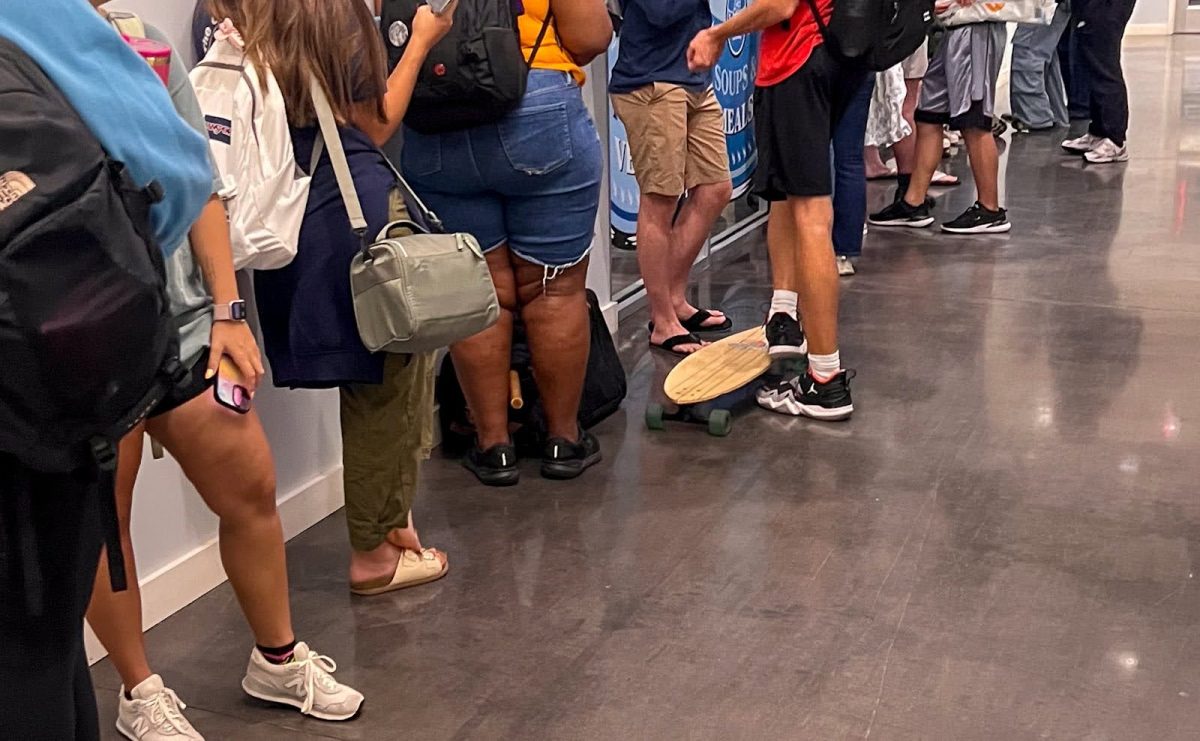
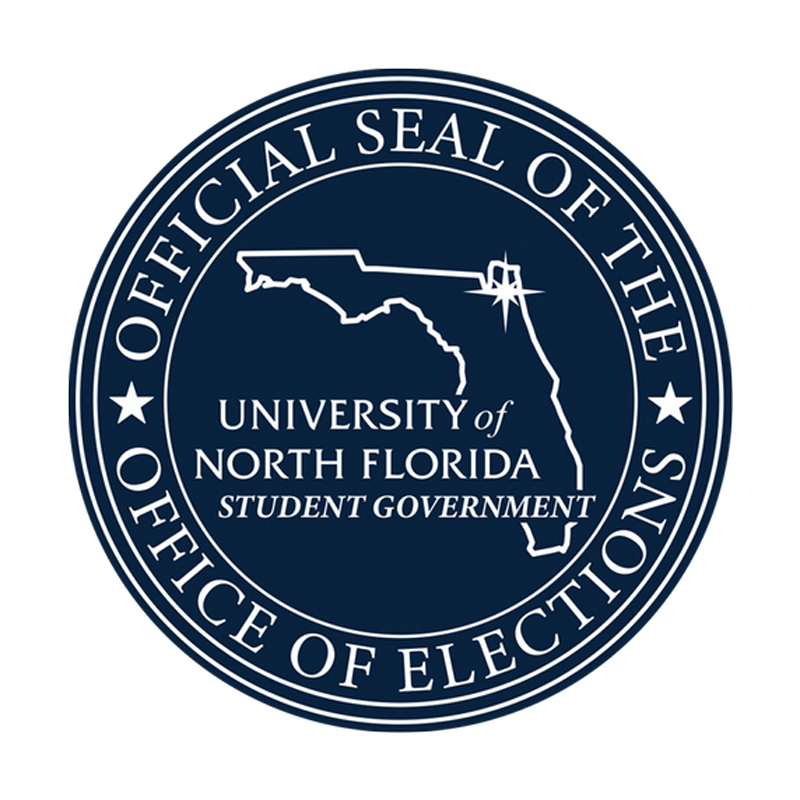


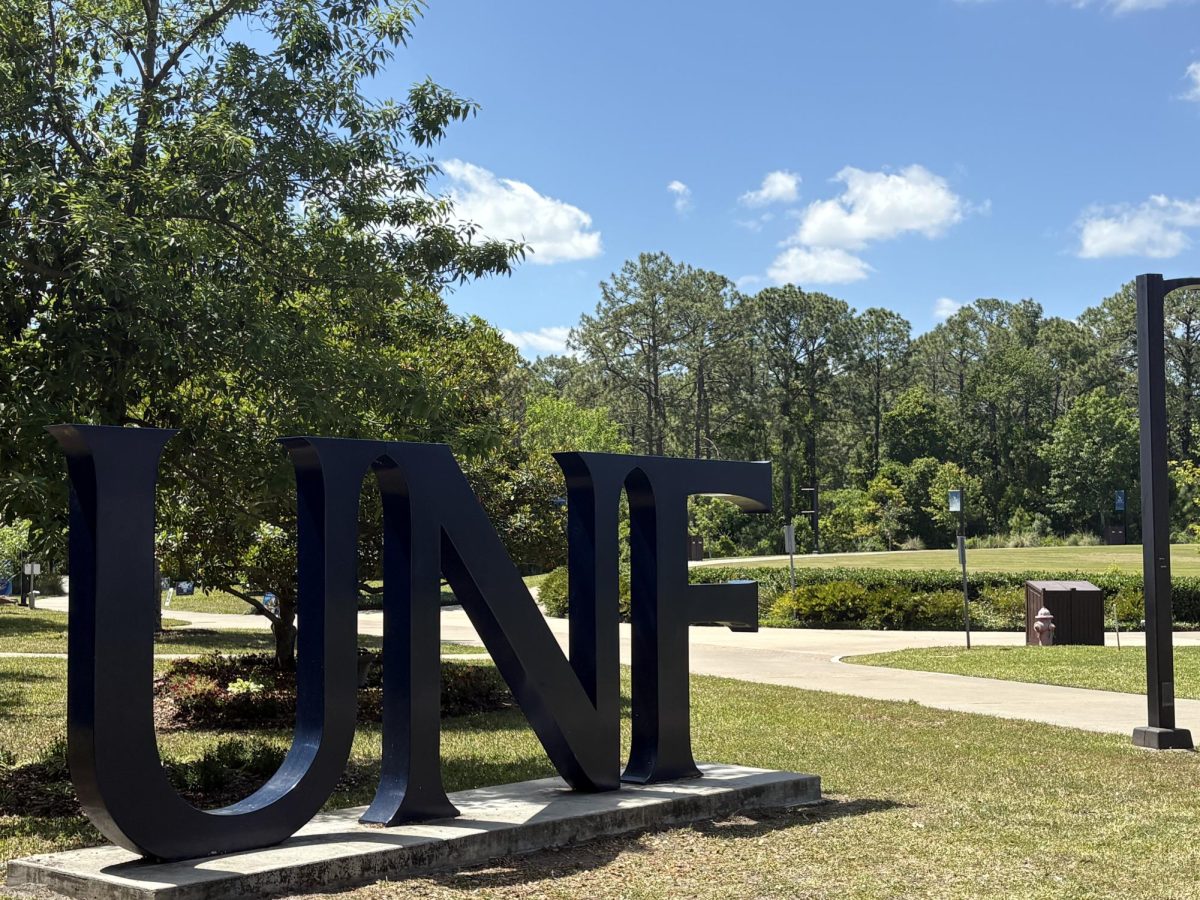
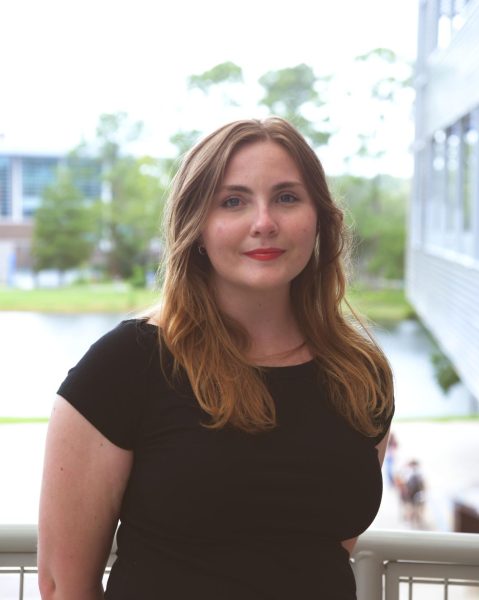
Steve DuVal | Sep 29, 2025 at 11:07 am
Excellent interview.
Great questions and to the point questions.
John | Sep 29, 2025 at 8:59 am
“No one, by breaking the law, got anything,” Limayem said.
This is historically inaccurate and it ignores a central tenet of democracy: the duty of citizens to resist unjust laws.
The entirety of the Civil Rights Movement was based on civil disobedience (aka, peacefully breaking unjust laws). Martin Luther King, Jr. called for civil disobedience against unjust laws in his Letter from a Birmingham Jail. Further, Thomas Jefferson said, “If a law is unjust, a man is not only right to disobey it, he is obligated to do so.” Just following the law—when that law is unjust—is to be complicit in an injustice.
And if we at the university don’t publicly speak out and complain about the injustices done to us and to our students, voters won’t even recognize the jeopardy we are in.